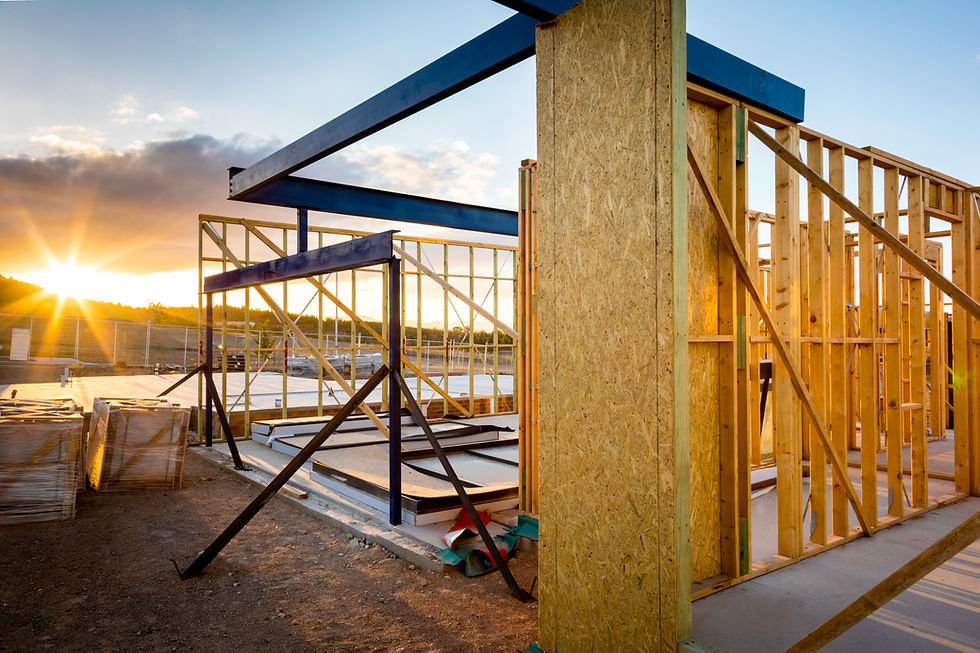Preventative Maintenance: Keeping Your Property in Top Shape
- Manach

- Jul 10, 2024
- 4 min read
Updated: Mar 12, 2025
Owning a property, whether it's a rental or your own home, is a significant investment. One of the most effective ways to protect that investment and ensure its value over time is through preventative maintenance. By taking a proactive approach to maintenance, you can avoid costly repairs, extend the lifespan of your property’s systems and components, and create a safer, more comfortable living environment.
The Importance of Preventative Maintenance
Preventative maintenance involves regularly inspecting and maintaining your property to identify and address potential issues before they become major problems. This approach not only saves money in the long run but also provides peace of mind knowing that your property is in good condition. Here are some key benefits of preventative maintenance:

Cost Savings
One of the most significant advantages of preventative maintenance is the cost savings. Addressing minor issues early can prevent them from escalating into expensive repairs. For example, fixing a small leak in the roof can prevent water damage that might require extensive and costly repairs if left unchecked.
Prolonged Lifespan of Systems and Appliances
Regular maintenance extends the life of your property’s systems and appliances. HVAC systems, plumbing, electrical wiring, and kitchen appliances all benefit from routine inspections and upkeep. Proper maintenance ensures these components function efficiently, reducing the likelihood of premature failure and the need for replacements.
Enhanced Property Value
A well-maintained property retains its value better than one that is neglected. Prospective buyers or renters are more likely to be attracted to a property that has been cared for, making it easier to sell or lease. Regular maintenance shows that you take pride in your property and are committed to providing a quality living space.
Increased Safety
Preventative maintenance helps identify and rectify potential safety hazards. Ensuring that smoke detectors are working, electrical systems are up to code, and structural elements are sound can prevent accidents and injuries. A safe property is not only a legal requirement but also a fundamental responsibility of property ownership.
Tenant Satisfaction and Retention
For rental property owners, preventative maintenance is crucial for tenant satisfaction and retention. Tenants are more likely to renew their leases if they feel their landlord is attentive to the property’s upkeep. This reduces turnover and the associated costs of finding new tenants.
Key Areas of Preventative Maintenance
HVAC Systems
Heating, ventilation, and air conditioning (HVAC) systems require regular maintenance to operate efficiently. Change air filters every 1-3 months, have a professional inspect and service the system annually, and clean the vents and ducts as needed. This not only improves air quality but also reduces energy costs.
Plumbing
Regularly check for leaks, drips, and water pressure issues in your plumbing system. Inspect faucets, toilets, and showerheads, and address any minor problems immediately. Ensure that drains are clear and flowing freely to prevent clogs. An annual inspection by a professional plumber can catch issues that aren’t immediately visible.
Roof and Gutters
Inspect your roof for damaged or missing shingles, and make necessary repairs to prevent leaks. Clean gutters and downspouts regularly to ensure proper drainage and prevent water damage. Trim overhanging branches to reduce the risk of roof damage from falling debris.

Electrical System
Ensure that your electrical system is up to code and functioning safely. Check for frayed wires, flickering lights, and malfunctioning outlets. Have a licensed electrician inspect the system periodically to prevent electrical fires and ensure safety.
Exterior Maintenance
The exterior of your property is the first thing people see, so keeping it in good condition is important. Power wash siding, clean windows, and maintain landscaping. Regularly inspect and repair walkways, driveways, and fences to prevent hazards.
Interior Upkeep
Regularly inspect the interior of your property for signs of wear and tear. Address minor repairs such as cracks in the walls, loose tiles, or peeling paint promptly. Keeping the interior well-maintained creates a pleasant living environment and prevents small issues from becoming major problems.
Incorporating Preventative Maintenance into Your Routine
Implementing a preventative maintenance plan doesn’t have to be overwhelming. Here are some steps to help you get started:
Create a Schedule: Develop a maintenance schedule that outlines tasks to be completed on a monthly, quarterly, and annual basis. This helps ensure that nothing is overlooked and maintenance is performed consistently.

%20(1).jpg)



Comments